RSN: Andy Borowitz | Benedict Arnold Wishes He Had Had Special Master
I recently received a modest financial windfall, and though I have no shortage of bills on which to spend those extra funds, I used a few of those dollars to supplement my monthly RSN contribution.
I’m frustrated that this most extraordinary news organization has to struggle so for basic financial well-being. The entire readership loses when RSN has to devote resources to raise money instead of focusing on their mission.
Surely most readers are in a position to give SOMETHING every month. Make it 20% of your cell phone bill. Half of what you spend on a dinner out. Some fraction of what you pay to stream movies. Just make it something.
Looking forward to the day when RSN has enough monthly supporters to make fundraiser messages a thing of the past.
Kristi, RSN Reader-Supporter
If you would prefer to send a check:
Reader Supported News
PO Box 2043 / Citrus Heights, CA 95611
Follow us on facebook and twitter!
Live on the homepage now!
Reader Supported News
The article below is satire. Andy Borowitz is an American comedian and New York Times-bestselling author whosatirizes the news for his column, "The Borowitz Report."
The disgraced military officer called his switching sides in the Revolutionary War “the kind of evidence that any special master worth his salt would have ruled out.”
“I think a special master would have taken a look at that and said, ‘Hold on, here—switching sides is a personal decision, so that’s privileged,’ ” he said. “That would have been a game changer for me.”
“I would have gone from ‘Benedict Arnold, notorious traitor,’ to ‘Benedict Arnold, victim of government witch hunt,’ ” he said.
Arnold added that, over the past few centuries in Hell, he has had ample time to ruminate about another event that occurred before he switched sides: his 1779 court-martial. “That would have played out differently if I had gotten to appoint the judge,” he said.
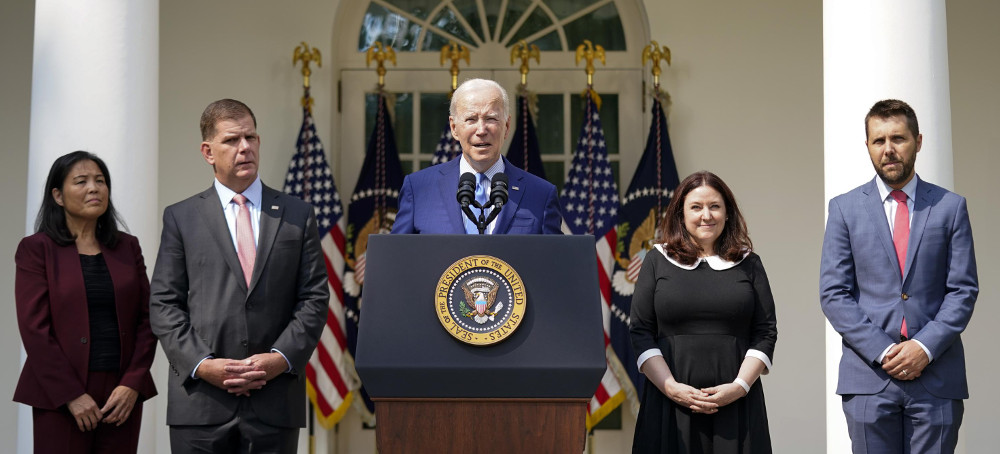 President Joe Biden speaks about a tentative railway labor agreement in the Rose Garden of the White House, Thursday, Sept. 15, 2022, in Washington. (photo: Andrew Harnik/AP)
President Joe Biden speaks about a tentative railway labor agreement in the Rose Garden of the White House, Thursday, Sept. 15, 2022, in Washington. (photo: Andrew Harnik/AP)
Railroads and union representatives had been in negotiations for 20 hours at the Labor Department well past midnight to hammer out a deal, as there was a risk of a strike starting on Friday that could have shut down rail lines across the country.
The president brought business and union leaders to the Oval Office on Thursday morning, then hailed the deal in remarks in the White House Rose Garden.
“This agreement is validation of what I’ve always believed, unions and management can work together — can work together — for the benefit of everyone," Biden declared.
Biden made a key phone call to Labor Secretary Marty Walsh at 9 p.m. Wednesday as the talks were ongoing after Italian dinner had been brought in, according to White House officials who insisted on anonymity to discuss the conversations. On speakerphone, the president told the negotiators to get a deal done and to consider the harm to families, farmers and businesses if a shutdown occurred, the officials said.
What resulted from the back and forth was a tentative agreement that will go to union members for a vote after a post-ratification cooling off period of several weeks. One union had to wake up its board to move forward on the agreement, which involved 50 calls from White House officials to organized labor officials.
In the Oval Office, a beaming Biden joked that he was surprised everyone was “still standing” after the late night and that they should be “home in bed.”
The strike would also have disrupted passenger traffic as well as freight rail lines, because Amtrak and many commuter railroads operate on tracks owned by the freight railroads. Amtrak had already canceled a number of its long-distance trains this week, and said the rest of its long-distance trains would stop Thursday ahead of the strike deadline.
Following the tentative agreement, Amtrak said it was “working to quickly restore canceled trains and reaching out to impacted customers to accommodate on first available departures.”
The five-year deal, retroactive to 2020, includes the 24% raises and $5,000 in bonuses that a Presidential Emergency Board recommended this summer. But railroads also agreed to ease their strict attendance policies to address some of the unions’ concerns about working conditions.
Railroad workers will now be able to take unpaid days off for doctor’s appointments without being penalized under railroad attendance rules. Previously, workers would lose points under the attendance systems that the BNSF and Union Pacific railways had adopted, and they could be disciplined if they lost all their points.
The unions that represent the conductors and engineers who drive the trains had pressed hard for changes in the attendance rules, and they said this deal sets a precedent that they will be able to negotiate over those kinds of rules in the future. But workers will still have to vote whether those changes are enough to approve the deal.
The threat of a shutdown had put Biden in a delicate spot politically. The Democratic president believes unions built the middle class, but he also knew a rail worker strike could damage the economy ahead of the midterms, when majorities in both chambers of Congress, key governorships and scores of important state offices will be up for grabs.
That left him in the awkward position on Wednesday. He flew to Detroit, a stalwart of the labor movement, to espouse the virtues of unionization, while members of his administration went all-out to keep talks going in Washington between the railroads and unionized workers.
As the administration was trying to forge peace, United Auto Workers Local 598 member Ryan Buchalski introduced Biden at the Detroit auto show as “the most union- and labor-friendly president in American history” and someone who was “kickin’ ass for the working class.” Buchalski harked back to the pivotal sit-down strikes by autoworkers in the 1930s.
In the speech that followed, Biden recognized that he wouldn’t be in the White House without the support of unions such as the UAW and the International Brotherhood of Electrical Workers, saying autoworkers “brung me to the dance.”
But without a deal among the 12 unions in talks back in Washington, Biden also knew that a stoppage could halt shipments of food and fuel at a cost of $2 billion a day.
Far more was at stake than sick leave and salary bumps for 115,000 unionized railroad workers. The ramifications could have extended to control of Congress and to the shipping network that keeps factories rolling, stocks the shelves of stores and stitches the U.S. together as an economic power.
White House press secretary Karine Jean-Pierre, speaking aboard Air Force One as it jetted to Detroit, said a rail worker strike was “an unacceptable outcome for our economy and the American people.”
Biden faced the same kind of predicament faced by Theodore Roosevelt in 1902 with coal and Harry Truman in 1952 with steel — how do you balance the needs of labor and business in doing what's best for the nation? Railways were so important during World War I that Woodrow Wilson temporarily nationalized the industry to keep goods flowing and prevent strikes.
Union activism has surged under Biden, as seen in a 56% increase in petitions for union representation with the National Labor Relations Board so far this fiscal year.
With the economy still recovering from the supply chain disruptions of the coronavirus pandemic, the president's goal was to keep all parties so a deal could be reached. Biden also knew a stoppage could worsen the dynamics that have contributed to soaring inflation and created a political headache for the party in power.
Eddie Vale, a Democratic political consultant and former AFL-CIO communications aide, said the White House pursued the correct approach at a perilous moment.
“No one wants a railroad strike, not the companies, not the workers, not the White House," he said. "No one wants it this close to the election.”
Sensing political opportunity, Senate Republicans moved Wednesday to pass a law to impose contract terms on the unions and railroad companies to avoid a shutdown. Democrats, who control both chambers in Congress, blocked it.
The economic impact of a potential strike was not lost on members of the Business Roundtable, a Washington-based group that represents CEOs. It issued its quarterly outlook for the economy Wednesday.
“We’ve been experiencing a lot of headwinds from supply chain problems since the pandemic started and those problems would be geometrically magnified,” Josh Bolten, the group's CEO, told reporters. “There are manufacturing plants around the country that likely have to shut down. ... There are critical products to keep our water clean.”
By 5:05 a.m. Thursday, it was clear that the hard work across the government, unions and railway companied had paid off as Biden announced the deal, calling it “an important win for our economy and the American people.”
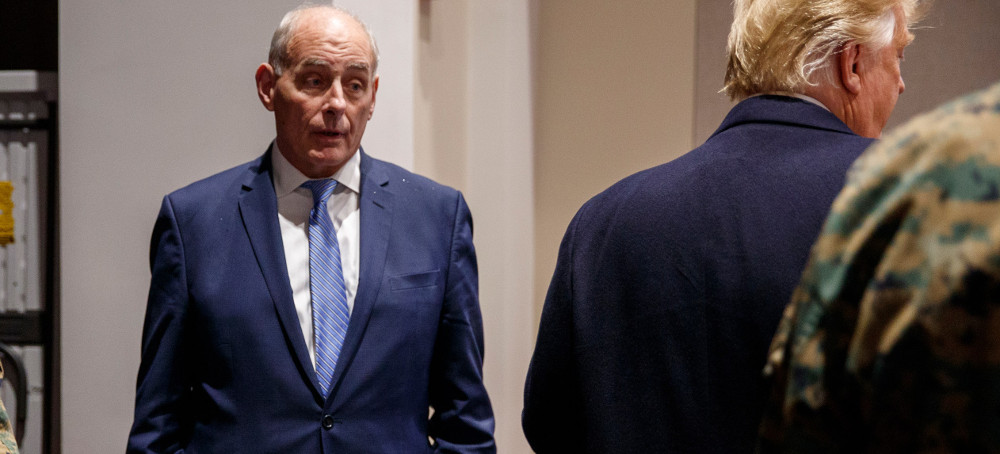 According to the book, John Kelly bought The Dangerous Case of Donald Trump as he attempted to cope with Trump's irrational behavior. (photo: Evan Vucci/AP)
According to the book, John Kelly bought The Dangerous Case of Donald Trump as he attempted to cope with Trump's irrational behavior. (photo: Evan Vucci/AP)
John Kelly secretly consulted The Dangerous Case of Donald Trump, according to new book by Peter Baker and Susan Glasser
News of John Kelly’s surreptitious purchase comes in a new book from Peter Baker of the New York Times and Susan Glasser of the New Yorker. The Divider: Trump in the White House, 2017-2021, will be published next week. The Guardian obtained a copy.
The book Kelly bought, The Dangerous Case of Donald Trump, was a bestseller in 2017. In January 2018 its editor, then Yale psychiatrist Bandy Lee, described its aims in a Guardian column.
She wrote: “While we keep within the letter of the Goldwater rule – which prohibits psychiatrists from diagnosing public figures without a personal examination and without consent – there is still a lot that mental health professionals can tell before the public reaches awareness.
“These come from observations of a person’s patterns of responses, of media appearances over time, and from reports of those close to him. Indeed, we know far more about Trump in this regard than many, if not most, of our patients.
“Nevertheless, the personal health of a public figure is her private affair – until, that is, it becomes a threat to public health.”
Kelly, a retired general, became Trump’s second chief of staff in July 2017 – after Trump fired Reince Priebus by tweet – and left the job in January 2019.
His struggles to impose order on Trump and his underlings and his virulent falling out with the president have been extensively documented. According to Baker and Glasser, who interviewed Kelly, the retired Marine Corps general bought a copy of The Dangerous Case of Donald Trump as he “sought help to understand the president’s particular psychoses and consulted it while he was running the White House, which he was known to refer to as ‘Crazytown’”.
“Kelly told others that the book was a helpful guide to a president he came to consider a pathological liar whose inflated ego was in fact the sign of a deeply insecure person.”
The authors report that Kelly’s view was shared by unnamed senior officials, quoting one as saying: “I think there’s something wrong with [Trump]. He doesn’t listen to anybody, and he feels like he shouldn’t. He just doesn’t care what other people say and think. I’ve never seen anything like it.”
The 25th amendment, which provides for the replacement of a president unable to meet the demands of the job, was seriously discussed at the end of Trump’s presidency, after the Capitol attack he incited.
Baker and Glasser say the amendment was tentatively discussed by cabinet members “within months of Trump taking office”. However, its flaws – if Trump opposed its use he would be all but impossible to shift – precluded further action.
Trump regularly dismissed claims about his mental health and his staff’s worries about it. In January 2018, after the publication of Michael Wolff’s tell-all book Fire and Fury, Trump memorably told reporters he was “a very stable genius”.
Kelly has regularly attacked Trump. In October 2020, CNN reported that Kelly told friends Trump’s dishonesty was “astounding … more pathetic than anything else” and called Trump “the most flawed person” he had ever met.
Trump blasted back, claiming Kelly “didn’t do a good job, had no temperament and ultimately he was petered out. He got eaten alive. He was unable to handle the pressure of this job.”
The Dangerous Case of Donald Trump was a bestseller, hailed by the Washington Post as “the most daring book” of 2017. But it also stoked controversy over its discussion of the mental state of a public figure.
In May 2020, Lee lost her job at Yale, in part, she said, over tweets about Trump. This month, a federal judge dismissed a lawsuit in which Lee said she was wrongfully fired.
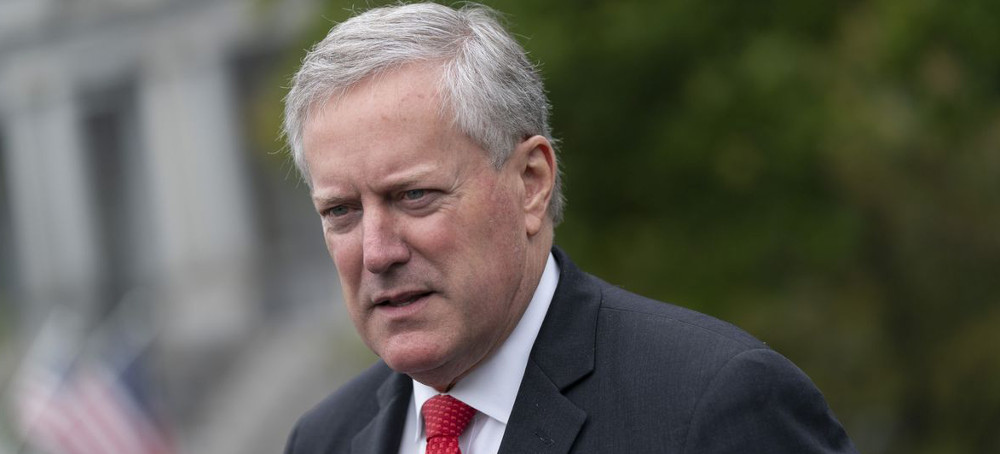 Mark Meadows complied with DOJ subpoena in January 6 probe. (photo: Chris Kleponis/Polaris Images)
Mark Meadows complied with DOJ subpoena in January 6 probe. (photo: Chris Kleponis/Polaris Images)
Meadows turned over the same materials he provided to the House select committee investigating the US Capitol attack, one source said, meeting the obligations of the Justice Department subpoena, which has not been previously reported.
Last year, Meadows turned over thousands of text messages and emails to the House committee, before he stopped cooperating. The texts he handed over between Election Day 2020 and Joe Biden's inauguration, which CNN previously obtained, provided a window into his dealings at the White House, though he withheld hundreds of messages, citing executive privilege.
In addition to Trump's former chief of staff, one of Meadows' top deputies in the White House, Ben Williamson, also recently received a grand jury subpoena, another source familiar with the matter tells CNN. That subpoena was similar to what others in Trump's orbit received. It asked for testimony and records relating to January 6 and efforts to overturn the 2020 election. Williamson previously cooperated with the January 6 committee. He declined to comment to CNN.
Meadows' compliance with the subpoena comes as the Justice Department has ramped up its investigation related to January 6, which now touches nearly every aspect of former President Donald Trump's efforts to overturn his 2020 election loss -- including the fraudulent electors plot, efforts to push baseless election fraud claims and how money flowed to support these various efforts, CNN reported this week.
An attorney for Meadows declined comment. The Justice Department did not respond to CNN requests for comment.
Federal investigators have issued at least 30 subpoenas to individuals with connections to Trump, including top officials from his fundraising and former campaign operation.
As White House chief of staff, Meadows was in the middle of Trump's efforts to overturn the election in the two months between Election Day and Biden's inauguration. Meadows communicated with numerous officials who tried to find election fraud and pushed various schemes to try to overturn the election, according to text messages obtained by CNN that Meadows turned over to the House select committee. Meadows also shared baseless conspiracy theories with Justice Department leaders as Trump tried to enlist DOJ's help in his push to claim the election was stolen from him.
After Meadows stopped cooperating with the House committee, Congress referred him to the Justice Department for contempt of Congress. DOJ declined to prosecute him for contempt earlier this year.
It's not yet clear whether the Justice Department will seek more materials from Meadows as part of the ongoing criminal investigation, which could lead to a legal fight over executive privilege.
Following last month's FBI search of Trump's Florida residence and resort, Meadows handed over texts and emails to the National Archives that he had not previously turned over from his time in the administration, CNN previously reported. Last year, Meadows spoke with Trump about the documents he brought to Mar-a-Lago that the National Archives wanted returned.
Trump has been counseled to cut contact with Meadows, and some of Trump's attorneys believe Meadows could also be in investigators' crosshairs and are concerned he could become a fact witness if he's pushed to cooperate, CNN reported last month. Still, Trump and Meadows have spoken a number of times, according to a source familiar with their relationship.
Another source described their relationship as "not the same as it once was" while in the White House, but said they still have maintained a relationship, even as Trump has complained about Meadows to others.
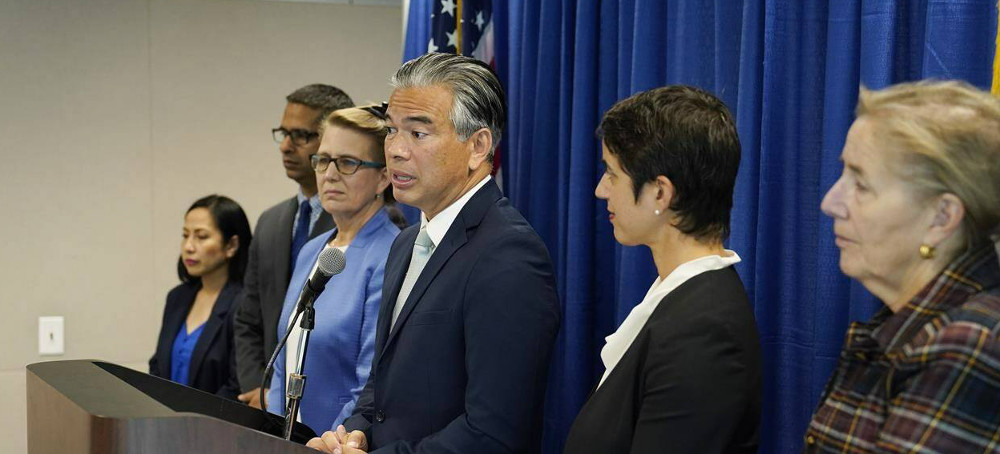 California Attorney General Rob Bonta announces a lawsuit against Amazon in San Francisco on Wednesday. (photo: Eric Risberg/AP)
California Attorney General Rob Bonta announces a lawsuit against Amazon in San Francisco on Wednesday. (photo: Eric Risberg/AP)
The lawsuit, filed by state Attorney General Rob Bonta, focuses on the way Amazon — the largest online retailer — deals with third-party merchants, who account for most of the sales on the platform.
California alleges that Amazon penalizes sellers and suppliers that offer cheaper prices elsewhere on the internet, including Walmart and Target, for example by displaying their items lower or less prominently or outright blocking their new postings.
"Amazon makes consumers think they are getting the lowest prices possible," the lawsuit alleges, "when in fact, they cannot get the low prices that would prevail in a freely competitive market because Amazon has coerced and induced its third-party sellers and wholesale suppliers to enter into anticompetitive agreements on price."
California's antitrust lawsuit is among the biggest legal challenges to Amazon in recent years, as lawmakers and regulators in the U.S. and abroad have investigated the retail giant for potential anticompetitive practices.
An Amazon spokesperson denied any antitrust violations, pointed out that a similar case in the District of Columbia was dismissed, and said the California Attorney General has it backwards.
"Sellers set their own prices for the products they offer in our store," the company said in a statement. "Like any store we reserve the right not to highlight offers to customers that are not priced competitively."
California also accuses Amazon of creating a "vicious anticompetitive cycle": Sellers view Amazon as a must; Amazon charges them higher fees to be able to sell on its platform; Sellers, in turn, raise their Amazon prices. And, even though it costs them less to sell on other websites, Amazon's policies push sellers to raise prices on those sites, too.
"Through its illegal actions, the, quote, "everything store" has effectively set a price floor, costing Californians more for just about everything," Bonta said at a press conference on Wednesday.
Earlier this year, a judge dismissed a similar lawsuit that was filed in Washington, D.C., though the city's attorney general has appealed.
In that case, Amazon argued its deals with merchants were meant to prevent shoppers from being overcharged, and punishing Amazon would hurt consumers.
Amazon has separately proposed a settlement with European antitrust regulators, who charged the company with violating competition laws. Their key allegations accused the company of using data it collected from third-party sellers to its own benefit.
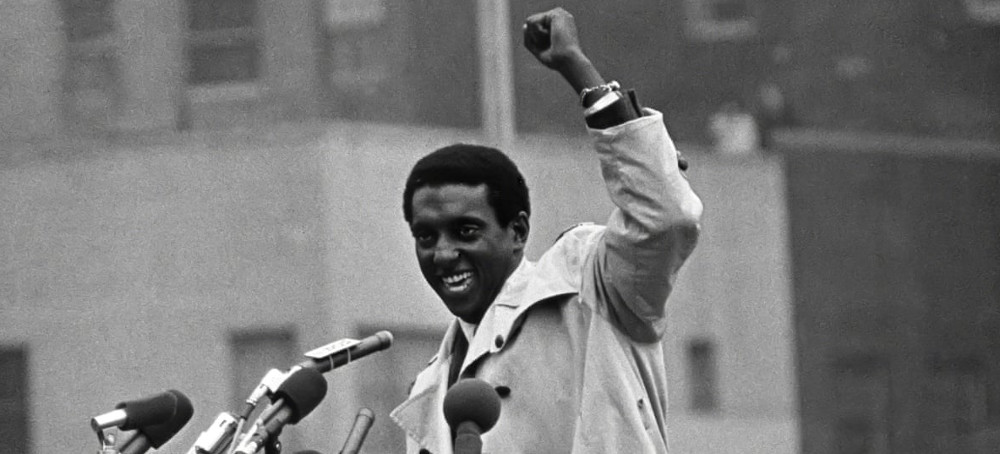 Stokely Carmichael at an anti-Vietnam war rally at the United Nations in New York, circa 1967. (photo: Getty)
Stokely Carmichael at an anti-Vietnam war rally at the United Nations in New York, circa 1967. (photo: Getty)
Secret Foreign Office unit distributed literature from fake sources to discredit Stokely Carmichael
The effort was the work of a secret unit known as the Information Research Department, based in London and part of the Foreign Office, which created and distributed literature from fake sources as part of a broader effort to destabilise cold war enemies.
Though focused primarily on the Soviet Union and China, leftwing liberation groups and leaders the UK saw as threats to its interests, the discoveries reveal the IRD from the late 1960s sought to counter more diverse targets too.
“We can see a large-scale attempt to shape events overseas, but one that was moving away from communism and targeting whole new areas. This shows the breadth, scope and scale of British covert information operations,” said Rory Cormac, an expert in the history of subversion and intelligence who found the material when researching his recent book, How to Stage a Coup: And Ten Other Lessons from the World of Secret Statecraft.
The effort against Carmichael, a firebrand orator who travelled to west Africa in part to escape harassment by US law enforcement agencies, aimed to portray the prominent Black Power leader as a foreign interloper in Africa who was contemptuous of the inhabitants of the continent.
Based mainly in Guinea from July 1969, the 28-year-old activist had became a vocal advocate of socialist, pan-Africanist ideologies, which worried British officials.
The documents show the IRD created a fake west African organisation called The Black Power – Africa’s Heritage Group, which produced a pamphlet calling Carmichael an “unbidden prophet from America” who had no place on the continent.
“Enough is enough – why Stokely must go! – and do his thing elsewhere,” read the pamphlet, alleging Carmichael was “weaving a bloody trail of chaos in the name of Pan-Africanism” and was controlled by Kwame Nkrumah, the independence leader and former president of Ghana who had been deposed in a coup in 1966.
The IRD’s effort did not attack Carmichael as a pro-Soviet or communist stooge, a hitherto frequent line of attack. Instead, the unit sought to portray its target as a traitor to other Black Power activists with a patronising attitude to African peoples.
By coming to Africa, Carmichael had “deserted the cause” in the US “which needs him more than we do” and had been arrogant in preaching Black Power to a continent “where it already truly belongs”, the pamphlet said. It also claimed Carmichael was a “burning zealot”, who seemed to imagine Africans as “savages” and compared him unfavourably with other radical activists who had recently arrived on the continent from the US such as Eldridge Cleaver, an early leader of the Black Panthers, who was living in Algeria.
“We are capable of formulating our own plans for our part in the struggle for equal rights and freedom for the Black man everywhere … and when we are launching ‘Black Power’ it will be our own brand ‘African Power’ and not the African American brainchild Stokely is trying to impose on us,” the fake statement read.
The smear operation against Carmichael received enthusiastic endorsement from officials within the IRD and elsewhere in the British government, including in the Foreign Office west African department. It came amid rising concern in Whitehall about the Black Power movement elsewhere in the world too. The IRD was particularly worried by the movement’s potential influence in the Caribbean.
In February 1969, the IRD learned of a Black Power conference to be held in Bermuda the following August and decided that rather than ban the event, it should attempt to discredit it. British intelligence services were asked for information on Black Power leaders, and any evidence of Soviet, Cuban or Guyanese links to the movement. This was only available from US intelligence services that had begun investigating links between black radicalism in the Caribbean and advocates of Black Power in the US from around 1968.
The IRD then prepared a series of articles for distribution to newspapers in the Caribbean and elsewhere. These accused the Black Power movement of being exploited by Havana and claimed the forthcoming conference would ruin Bermuda economically.
The IRD also prepared and distributed an article about Black Power leaders targeting Trinidad. This suggested that communists were behind Black Power aspirations on the island, and that outside powers operated “with the collusion of ambitious locals seeking their own ends”.
Some tactics in Bermuda were rejected for fear of stoking racial tensions, and local officials in the Caribbean were not supportive of the campaign. “There were limits to what the IRD was prepared to do. In the Caribbean, the concern was that racial tension could lead to riots and disruption of tourism and so the wider economy. In general, the IRD was happy to insinuate something without evidence but not with outright lying,” Cormac said.
In 1969, the IRD also created a new fake group: The Organisation of African Students for African Power. This was supposedly based in East Germany and adopted contemporary radical New Left ideas, “proclaiming a plague on both” the capitalist west and the Soviet bloc.
The IRD felt this provided a better platform to “damage opponents” than the dated nationalist approach, while being difficult to trace back to Britain because many similar groups had genuinely sprung up in the late 1960s. The group attempted to link a wave of assassinations in Africa to the Soviets.
The British were not alone in using such tactics. The KGB committed significant resources to disinformation campaigns throughout the cold war and achieved some significant successes. One pamphlet produced by the Soviet service reported accurate American statistics and real cases of race crimes in order to turn African audiences against the US. It was made to look like it had been written by an African-American organisation agitating against the Ku Klux Klan.
The CIA built extensive networks across sub-Saharan Africa, and used cultural ambassadors such as Louis Armstrong as a “Trojan horse” for intelligence-gathering.
The agency continued to be interested in Carmichael after his flight from the US in 1969 and “wrote typescript memos on [his] travels abroad during a period when he had dropped from public view”, a summary of activities released by the agency in 2007 revealed.
“The UK effort was a lot smaller than that of the Americans or the Soviets and more restrained too, but it was broad in scope. The UK was doing this all over the world,” Cormac said. “Information operations were seen as a force multiplier. It is clear there was a recognition that we were small and in decline but that this was a clever way of maintaining a global role on the cheap.”
 Last year, Shiva Rajbhandari, right, and other high school students on March for Our Lives Idaho's board lobbied for legislation to require minors to pass a gun safety test before being allowed to purchase weapons. (photo: Sarah A. Miller/Getty)
Last year, Shiva Rajbhandari, right, and other high school students on March for Our Lives Idaho's board lobbied for legislation to require minors to pass a gun safety test before being allowed to purchase weapons. (photo: Sarah A. Miller/Getty)
High school senior Shiva Rajbhandari won elected office in Boise, defeating an incumbent school board trustee backed by local extremists.
The student, Shiva Rajbhandari, was elected to the position by voters in Idaho’s capital last week, defeating an incumbent board member who had refused to reject an endorsement from a local extremist group that has harassed students and pushed to censor local libraries.
Rajbhandari, who turned 18 days before the election, was already well-known in the school district as a student organizer on climate, environmental, voting rights, and gun control issues. But in the closing days of the campaign, his opponent, Steve Schmidt, was endorsed by the far-right Idaho Liberty Dogs, which in response helped Rajbhandari win the endorsement of Boise’s leading newspaper, the Idaho Statesman.
Rajbhandari, a third-generation Idahoan whose father is from Nepal, was elected to a two-year term with 56 percent of the vote.
In an interview, Rajbhandari told The Intercept that although he had hoped people would vote for him rather than against his opponent — “My campaign was not against Steve Schmidt,” he said — he was nonetheless shocked that Schmidt did not immediately reject the far-right group’s endorsement. “I think that’s what the majority of voters took issue with,” Rajbhandari said.
The Idaho Liberty Dogs, which attacked Rajbhandari on Facebook for being “Pro Masks/Vaccines” and leading protests “which created traffic jams and costed [sic] tax payers money,” spent the summer agitating to have books removed from public libraries in Nampa and Meridian, two cities in the Boise metro area.
But, Rajbhandari said, “that’s the least of what they’ve done. Last year, there was a kid who brought a gun to Boise High, which is my school, and he got suspended and they organized an armed protest outside our school.”
Rajbhandari, who started leading Extinction Rebellion climate protests in Boise when he was 15, is familiar with the group’s tactics. “We used to have climate strikes, like back in ninth grade, and they would come with AR-15s,” he said, bringing rifles to intimidate “a bunch of kids protesting for a livable future.”
So when the Idaho Liberty Dogs called on Boise voters to support Schmidt — and a slate of other candidates for the school board who, ultimately, all lost — Rajbhandari told me he texted his rival to say, “You need to immediately disavow this.”
“This is a hate group,” Rajbhandari says he told Schmidt. “They intimidate teachers, they are a stain on our schools, and their involvement in this election is a stain on your candidacy.” Schmidt, however, refused to clearly reject the group, even after the Idaho Liberty Dogs lashed out at a local rabbi who criticized the endorsement by comparing the rabbi to Hitler and claiming that he harbored “an unrelenting hatred for white Christians.”
While the school board election was a hyperlocal one, Rajbhandari is aware that the forces he is battling operate at the state and national level. “Idaho is at the center of this out-of-state-funded far-right attack to try to undermine schools, with the end goal of actually abolishing public education,” Rajbhandari told me. “There’s a group, they’re called the Idaho Freedom Foundation, and they actually control a lot of the political discourse in our legislature. Their primary goal is to get rid of public education and disburse the money to charter schools or get rid of that funding entirely.”
“And the way they’ve done that, is with this very well-thought-out attack on teachers,” he added, promoting “baseless claims of ‘indoctrination’” in schools as well as “attacks on LGBTQ youth, with claims of ‘grooming.’”
Last year, when he was 16, Rajbhandari publicly confronted Idaho’s far-right lieutenant governor, Janice McGeachin, telling her that the task force she had set up to “Examine Indoctrination in Idaho Education” was investigating an entirely imaginary threat.
During in-person testimony to the task force, the young activist told McGeachin, who was running for governor at the time, and her running mate, state Rep. Priscilla Giddings, that Idaho teachers were not “indoctrinating students to hate America, as this committee purports.” He went on to accuse the two Republican officials of endorsing baseless conspiracy theories as a political stunt in support of their candidacies.
“You won’t succeed,” he told them. “You won’t succeed in silencing student voices. You won’t succeed at bringing Idaho back to the 1800s. You won’t succeed at abolishing public schools as the Freedom Foundation aspires. And you won’t succeed in being elected to the executive branch of state government, which I feel is the true purpose of this.”
“And you won’t succeed because despite all your efforts, we Idahoans are smart, we’re educated, and we can’t be fooled into believing that something exists when the opposite is true,” Rajbhandari added. “All across the state, there are young people like me who will vote in the Republican primary for the first time in 2022.”
McGeachin — who was, as Rajbhandari had predicted, ultimately defeated in the Republican primary for governor — had launched the task force by appealing for “information regarding problematic teachings on social justice, critical race theory, socialism, communism, or Marxism” in public schools. But the response from Idahoans was so overwhelmingly opposed to her claims of widespread indoctrination that she refused to make the comments submitted to the task force public until a court ordered her to do so.
A review of the records by the Idaho Capital Sun showed that about 90 percent of the public comments on the subject either denied that Idaho teachers were indoctrinating students or criticized McGeachin for wasting taxpayer dollars “chasing an illusion.”
The initial impetus for Rajbhandari’s run for office was a feeling of frustration that the Boise school board was simply ignoring pleas from student climate activists to make a clean energy commitment. Two years ago, he said, a group of high school and junior high students tried everything they could think of to urge the board to make a commitment to renewable energy. “We sent emails; we did a postcard drive and wrote like 300 postcards; we met with our local power company; we had a petition, we delivered the largest petition ever to our school district,” Rajbhandari said, but the board never responded. “Last year, I wrote a letter to our school board president, just asking for a meeting … and I never got anything back. But I know that he read my letter because about a week later, I was called to the principal’s office.”
“That’s when I knew I was going to run” for a seat on the board, Rajbhandari recalled. “Because that is indicative of a problem. Students are the primary stakeholders in our education, right? And yet our board wasn’t seeing us as constituents, and they weren’t willing to meet with us, and they weren’t taking our ideas seriously,” he said.
“That’s not to say that my run for the board comes from a place of animosity,” he added, “but it comes from a place of need, which is that we don’t have student representation on the Boise Schools board, and our board members aren’t boots-on-the-ground in the classroom.”
One of the most urgent priorities for action from the board, Rajbhandari says, is finding resources to address a mental health crisis in a state that has one of the highest teen suicide rates in the country.
If all goes according to plan, Rajbhandari hopes to serve on the board for the whole school year, then hand over the seat to one of the high school juniors from the district who will shadow him for the year. The idea is to ensure student representation on the Boise school board going forward.
As for his own future, Rajbhandari told me that he is looking at colleges now but is not yet certain about what’s next. “I’m really passionate about climate justice, environmental issues — so maybe study law,” he said. “But I think that’s what school’s for, is figuring out who you want to be. And really, Boise Schools is what made me who I am, and so I can thank my teachers for that.”
Follow us on facebook and twitter!
PO Box 2043 / Citrus Heights, CA 95611


Comments
Post a Comment